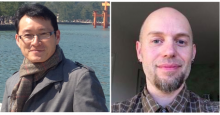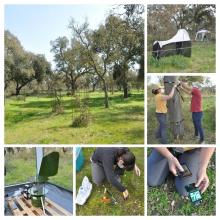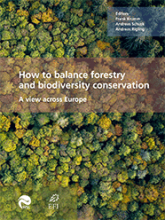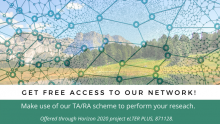News/Events
 11/12/2021
11/12/2021 We are excited to announce the 2nd ILTER webinar to share and learn research findings using the ILTER network sites. We do hope you will enjoy the research talks by our two excellent speakers.
Invited speakers
Prof. Qing-Wei WANG
Institute of Applied Ecology, Chinese Academy of Sciences (CAS)
ILTER member network: JaLTER (Ogawa)
Topic: Unignorable photodegradation: Solar radiation is accelerating carbon cycle process of temperate forest ecosystems
Dr. James WELDON
Swedish University of Agricultural Sciences, SLU
ILTER member network: LTER Sweden (IM Sweden, Integrated Monitoring sites)
Topic: Weak recovery of epiphytic lichen communities in Sweden over 20 years of rapid air pollution decline
Date and time:
Wednesday, 8th December 2021 (11:00 – 12:00 AM UTC)
Please check your own time zone.
ILTER Webinars times will vary to capture audiences across different regions. Therefore, we will record all presentations that will be available to all on our ILTER YouTube channel.
Please register from the link below to get an invitation email with Zoom access. We are looking forward to seeing all of you at the ILTER webinar via ZOOM.
Registration Here: https://us02web.zoom.us/webinar/register/WN_db7VYYqwTUexSWYDpk7FQA
 11/09/2021
11/09/2021 The eLTER SPF Training working group is organising its first workshop on time series analysis, given by Ulrike Obertegger (FEM-CRI, Italy).
The workshop is open to everyone from students to researchers, independently of involvement in eLTER projects. The workshop will give an introduction to the challenges of time series data and demonstrate different analysis methods. This is not a technical course but a practical demonstration of what can be done to solve certain ecological questions.
All the analyses are done in R and thus a basic understanding of R coding is helpful but not necessary.
The workshop will be organised twice with the same content:
· Wednesday 1 December 2021 at 14:00-16:00 CET
· Monday 24 January 2022 at 14:00-16:00 CET
Outline:
· Introduction on basic terminology
· Classic time series analyses. Mann Kendall, Sen Theil trend estimation
· Change point analysis
· Modeling time series with cosine trends
· GAM
· Clustering of time-series with DTW
R-script and example data will be provided one week before the workshop.
Registration: https://elomake.helsinki.fi/lomakkeet/114200/lomake.html
 06/07/2021
06/07/2021 The monitoring station of Companhia das Lezírias (CL) joined the LIFEPLAN project, as a representative of the montado landscape. Every week and until 2026, the cE3c team will collect the images and sounds recorded automatically by cameras and audiomoths installed on trees, and samples of spores and flying insects collected with a cyclone sampler and a malaise trap. Soil samples will also be collected 8 times a year. This sampling effort will be alternating every year with the correspondent Lisbon urban site. All data collected will be integrating a global dataset to better understand the state of biodiversity on our planet.
 03/18/2021
03/18/2021 A new book was published where Companhia das Lezírias is presented as a case study. This publication strives to show the challenges of forest managers to fulfil the societal demands for forests and especially to integrate the promotion of biodiversity. 44 authors from science, policy, and practice describe in a first section consisting of 12 chapters the driving factors of forest management as national laws and legacies, ownership structures, forest history, and socio-structural conditions. In a second section, 113 authors from forest managers present 32 case examples from 19 European countries that demonstrate the different approaches to integrate the locally requested ecosystem services.
 11/02/2020
11/02/2020 Are you a scientist working in the areas of biodiversity, biogeochemistry, hydrology or socio-ecological research? Do you want to study the natural environment at one of our well-equipped research sites?
eLTER PLUS project provides opportunities to perform research focussed on our LTsER Montado platform.
Transnational Access (TA) - this option enables in-person visits (e.g. to collect and analyse data) to one or more LTER sites/LTSER platforms involved in the scheme.
Remote Access (RA) – enables the execution of activities at sites by the local teams, which are defined by “remote users” (e.g. measurements, data collection, and experiments according to instructions and protocols provided by the remote users).
eLTER PLUS encourages users to combine TA- and RA-related project work where they can test hands-on procedures and refine the protocol at one site, and then have the same protocol performed at other sites remotely.
Please consider that due to possible COVID-related travel restrictions, at present, a focus on RA is recommended.
- ‹ previous
- 2 of 5
- next ›



